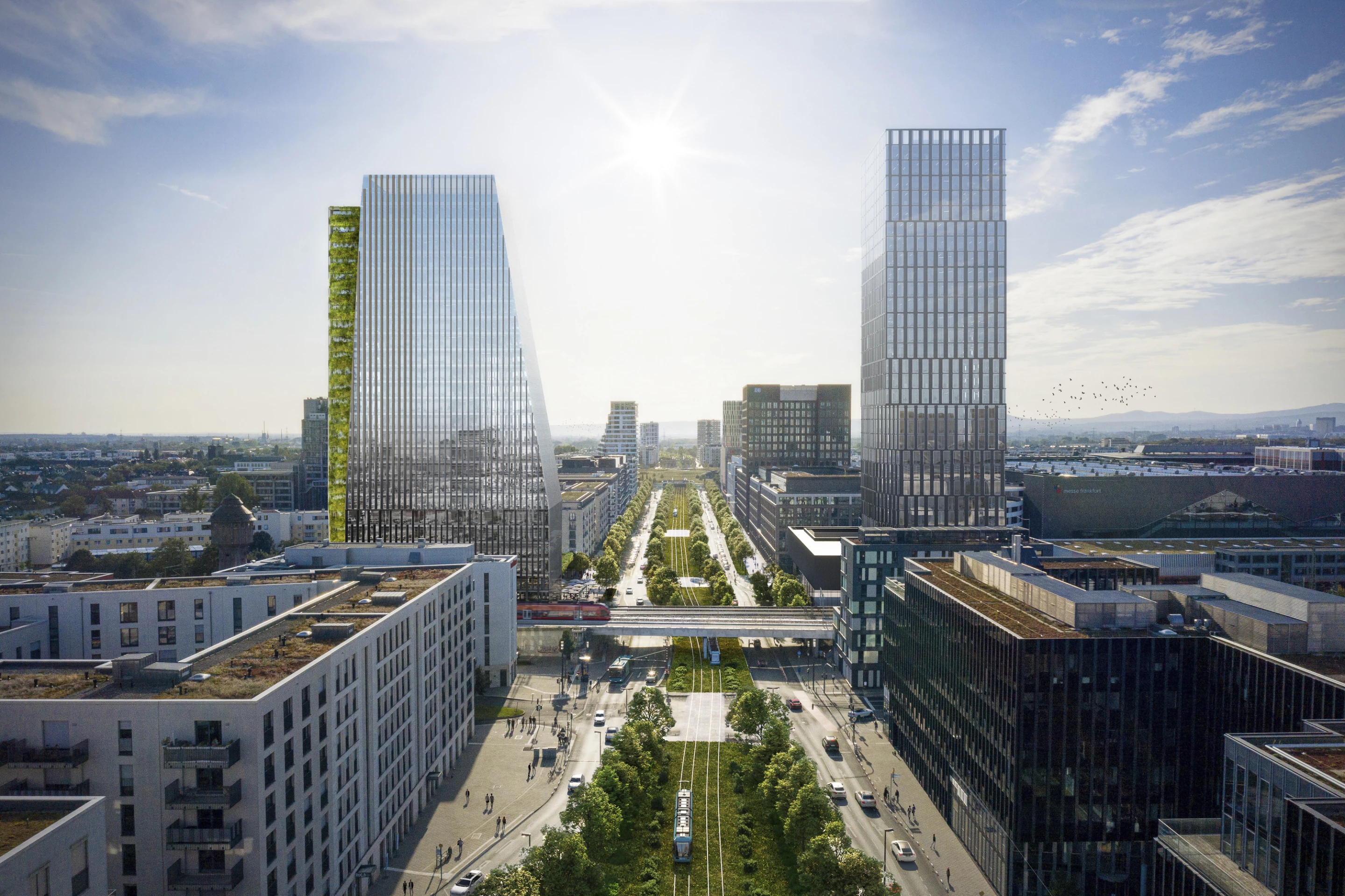UNStudio has revealed plans for a new office tower in Germany. Enlivened by a strip of greenery running up its facade, the angular building will reduce its grid-based energy use with an ambitious approach to sustainable design, including a solar facade.
Nion, which also involves Okra Landscape Architects, is slated for downtown Frankfurt and is part of a longterm development push in the area. The building's interior will measure 45,000 sq m (roughly 485,000 sq ft) and will mostly be given over to office space, though there will also be a restaurant, cafes, and a bakery on the lower floors, as well as multiple greenery filled terrace areas too.
We've no word on Nion's height at this early stage, but the renders depict a mid-rise or high-rise tower. The way it incorporates greenery into its facade brings to mind UNStudio's Southbank by Beulah and its overall form is meant to complement nearby buildings.
"The structure consists of two intersecting volumes, where the northwest and southeast corners are cut away to create a striking vertical effect, emphasized by lush greenery," explained UNStudio. "The cubature responds to the proximity of surrounding buildings and to Nion's prominent position next to the park, by way of angled facade surfaces that contrast dynamically with the cut-out corners. These cut-outs taper from the seven storey base building, picking up the lines of the surrounding perimeter block development and unifying the different urban scales. The vertical intersection of the inner corner on the northwest side also divides the building into tower and podium, giving the building a more slender appearance."

Its solar facade will be similar to the recent 550 Spencer and allow it to generate electricity, though there's no confirmation yet on what capacity this will offer. Other notable green tech and design planned for the office tower include rainwater management, and an energy efficient geothermal heating and cooling system. A smart building management system, demand-based air conditioning, and efficient LED lighting will help minimize energy use, plus it will contain energy recuperating elevators.
Additionally, prefabricated components will be used in construction, alongside a modular supporting structure, to reduce waste and speed up build time. Recyclable construction materials will be used and flexible floorplans will also be used in an attempt to ensure the building is future-proof.
There's no confirmation yet when Nion is expected to be completed, though developer Groß & Partner has confirmed it means to move forward with the project.
Source: UNStudio







